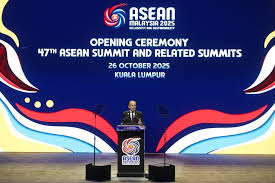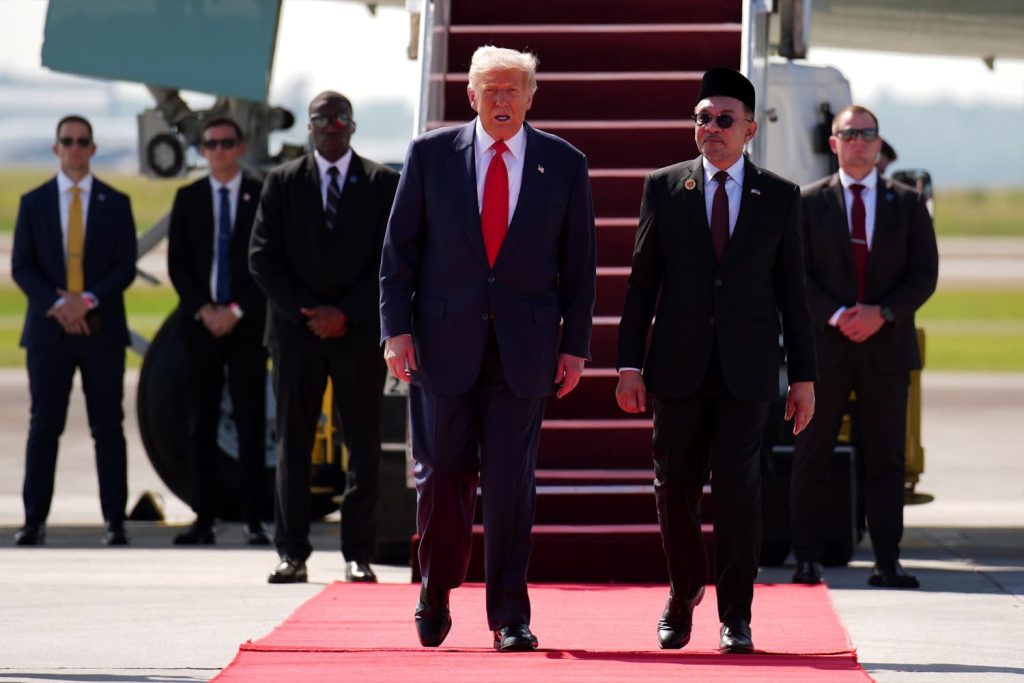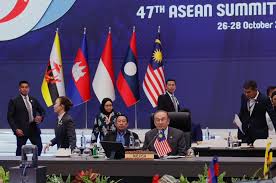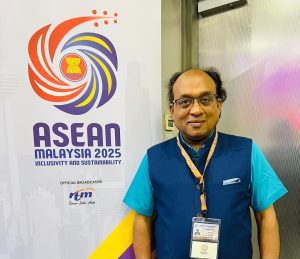
KUALA LUMPUR: It is Malaysia’s moment and that of the Global South under the sun. Kuala Lumpur, famed for its neck-craning skyscrapers and the iconic Petronas Twin Towers, is hosting the 47th ASEAN and related summits, which puts the spotlight on the 11-nation grouping’s role in rejuvenating economic growth and in promoting peace and stability in the region against the backdrop of growing geopolitical turbulence. In the perennially distracted New Delhi, the interest in the Kuala Lumpur summit has dimmed after Prime Minister Narendra Modi decided to skip the summit due to scheduling constraints and overriding political priorities. The summits in Malaysia, however, need close monitoring and attention as it will not just impinge on interests of the region but also the world which is reeling under a crippling crisis of multilateralism. The summits, hosted at the Kuala Lumpur Convention Centre (KLCC) in Malaysia, is fittingly themed “Inclusivity and Sustainability.”
Here are five key reasons why the 47th ASEAN and related summits matter:
The Bigger, the Better
It’s perhaps the largest gathering of world leaders at ASEAN/East Asia summits. More than 20 world leaders are attending the summit, which underscores the growing importance of this economically vibrant and strategically located zone not just for the region, but also for the world. Outside the 11-nation ASEAN fold, the leaders attending the summit include, among others, US President Donald Trump, Brazil’s President Lula da Silva, South Africa’s President Cyril Ramaphosa, Italian Prime Minister Giorgia Meloni, Japan’s first female Prime minister Sanae Takaich, Australian Prime Minister Anthony Albanese and Canadian Prime Minister Mark Carney. Besides Asean member states, leaders and representatives from key partners are scheduled to attend related meetings under the “Asean+” format, which brings together Asean and non-member countries to brainstorm on economic, political and security issues of common interest. Many side meetings will also be held, including the East Asia Summit and the Asean Business and Investment Summit.
The Trump Tower

US President Donald Trump is the big-ticket star attraction at the Kuala Lumpur. Defying his reputation as the disruptor-in-chief, the maverick billionaire-turned-politician turned on his full charm as he waltzed into Kuala Lumpur on Sunday morning, waving flags and joining the dance troupe with his trademark steps before taking off in “The Beast”, together with Malaysian Prime Minister Anwar Ibrahim to attend the summits at the Kuala Lumpur Convention Centre.
President Trump’s presence at the Kuala Lumpur summit spotlights the US’ role in the region amid doubts about Washington’s commitment to ASEAN region and intensifying US-China rivalry. Trump is only the third American president visit Malaysia, after Lyndon B. Johnson in 1966 and Barack Obama in 2014 and 2015.
ASEAN’s role as a bridge-builder

With the jamboree of world leaders in attendance, the Kuala Lumpur summits underline the role of ASEAN as a bridge-builder in a world buffeted by trade wars and sharpening geopolitical rivalries. Spanning north and south, east and west, the presence of the leaders from across the world bolsters ASEAN’s role as a preeminent networking forum for world leaders who come from different ideological and political backgrounds. The presence of the leaders of original BRICS countries along with the leaders of Quad countries, except India’s Prime Minister Narendra Modi who will be represented by External Affairs Minister S. Jaishankar, showcases the grouping’s role to bring together contrarian pluri-lateral groupings on the same stage. The leaders will not only be sharing their views at the summits but also hold bilateral meetings among themselves in which global hot-button issues such as the Gaza peace deal will figure prominently in discussions.
Promoting Peace & Rules-based order
The signing of a “peace deal” between Thailand and Cambodia in the presence of US President Donald Trump and his Malaysian host Anwar Ibrahim will put the spotlight on ASEAN’s role in promoting peace and rules-based international order. The Kuala Lumpur Accord follows the immediate and unconditional ceasefire that Cambodia and Thailand agreed to on July 28. It will establish an Asean Observer Team to monitor the border area.
Maritime security, ongoing South China Sea tensions, US-China rivalry, and regional threats like transnational crime and humanitarian crises figures prominently on the agenda of the summits in Kuala Lumpur. Discussions build on the ASEAN Political-Security Community (APSC) Blueprint 2025’s end-term review, emphasizing peace, stability, and a rules-based order. The leaders of ASEAN countries will also seek to expedite negotiations with China on a legally binding Code of Conduct. While progress on the CoC remains cautious due to divisions in the grouping, the summit could yield tangible steps toward a “rules-based regional order.”
Against the backdrop of China’s increasing assertiveness in contested maritime spaces, India has high stakes in preventing conflicts and in ensuring freedom of navigation in vital trade routes such as South China Sea. India has proposed 2026 as the ASEAN-India Year of Maritime Cooperation, thereby highlighting India’s role in ensuring freedom of navigation.
ASEAN & Global South
Amid shifting tectonic plates of global power, Malaysia’s Prime Minister Anwar Ibrahim has positioned ASEAN as a key player in the Global South and a rising force to be reckoned with. Underpinning Anwar’s Global South push is the principle of a shared future. He has called for support from the Global South to accelerate reforms in the international financial system, particularly the International Monetary Fund (IMF) and World Trade Organisation (WTO).
The summKUALA LUMPUR: It is Malaysia’s moment and that of the Global South under the sun. Kuala Lumpur, famed for its neck-craning skyscrapers and the iconic Petronas Twin Towers, is hosting the 47th ASEAN and related summits, which puts the spotlight on the 11-nation grouping’s role in rejuvenating economic growth and in promoting peace and stability in the region against the backdrop of growing geopolitical turbulence. In the perennially distracted New Delhi, the interest in the Kuala Lumpur summit has dimmed after Prime Minister Narendra Modi decided to skip the summit due to scheduling constraints and overriding political priorities. The summits in Malaysia, however, need close monitoring and attention as it will not just impinge on interests of the region but also the world which is reeling under a crippling crisis of multilateralism. The summits, hosted at the Kuala Lumpur Convention Centre (KLCC) in Malaysia, is fittingly themed “Inclusivity and Sustainability.”

(Manish Chand, CEO, India Writes Network and Centre for Global Insights India, a think tank focused on global affairs, is in Kuala Lumpur to report on and analyse the 47th ASEAN and related summits.)
Author Profile

- Manish Chand is Founder and Editor-in-Chief of India Writes Network (www.indiawrites.org) and India and World, a pioneering magazine focused on international affairs. He is CEO, Centre for Global India Insights, an India-based think tank focused on global affairs.
Latest entries
 India and the WorldFebruary 17, 2026South-by-South: Focus on people-centric solutions at India AI summit
India and the WorldFebruary 17, 2026South-by-South: Focus on people-centric solutions at India AI summit India and the WorldFebruary 7, 2026Modi hails interim India-US trade deal, Goyal says no concessions made on agriculture
India and the WorldFebruary 7, 2026Modi hails interim India-US trade deal, Goyal says no concessions made on agriculture India and the WorldFebruary 2, 2026Trump announces trade deal with India, Modi ‘delighted’
India and the WorldFebruary 2, 2026Trump announces trade deal with India, Modi ‘delighted’ India and the WorldJanuary 31, 2026Palestinian minister bats for mediatory role for India in ending Gaza conflict
India and the WorldJanuary 31, 2026Palestinian minister bats for mediatory role for India in ending Gaza conflict







